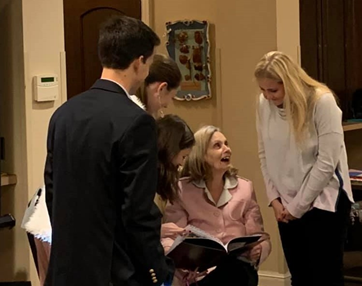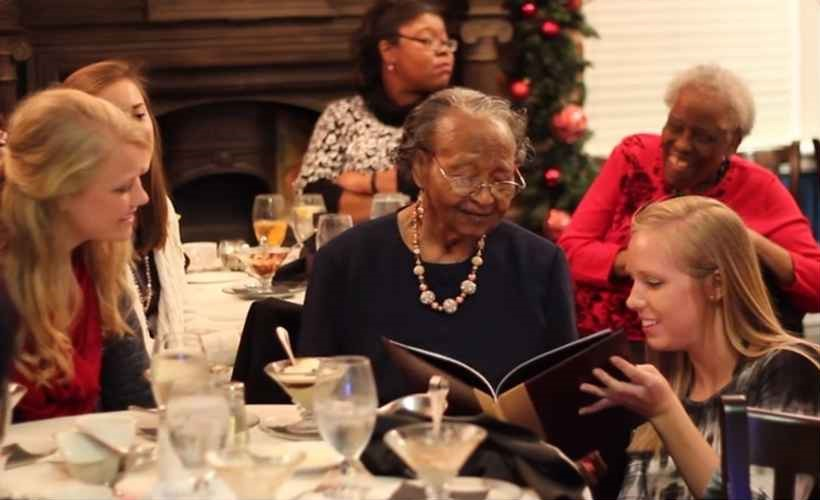LifeBio partners with colleges and universities to offer a unique hands-on experience for students in a variety of fields. LifeBio’s story process is a natural fit for gerontology, nursing, aging in society, psychology, social work, and other fields of study.
Watch Video: LifeBio for Colleges and Universities--Workforce Development
Wichita State University Students & Local Seniors Come Together - Connecting Generations Video

Many fields, especially health care, seek employees who demonstrate high levels of sensitivity, empathy, and compassion. The LifeBio process assists in developing these skills through real-life interactions, while teaching valuable lessons on acceptance and diversity. LifeBio strives to teach the importance of person-centered care and seeing people holistically, avoiding ageism in life and work.
The LifeBio Memory life story recording app is a fantastic intergenerational tool for students and older adults to use together.
For higher levels of learning, the LifeBio project can easily be incorporated into a course curriculum or syllabus and studied along the way. After using the app to record, typically LifeBio’s Story Team will then create a Life Story Book for each older adult.
Often instructors require a reflective essay for students to express what they learned throughout the process and how it affected them. Many students describe this as a valuable, eye-opening experience that is life changing. Older adults express feelings of hope and purpose as a result.

The University of Alabama students partnered with LifeBio for a service-learning course working with people living with Alzheimer’s or dementia. Through art therapy and LifeBio’s reminiscence methods, students completed an intergenerational experience that ended in a gala honoring their partners. (Click here to see video.)

LifeBio makes intergenerational projects between students and elders a reality.Custom projects can be designed for your specific college or university situation. |